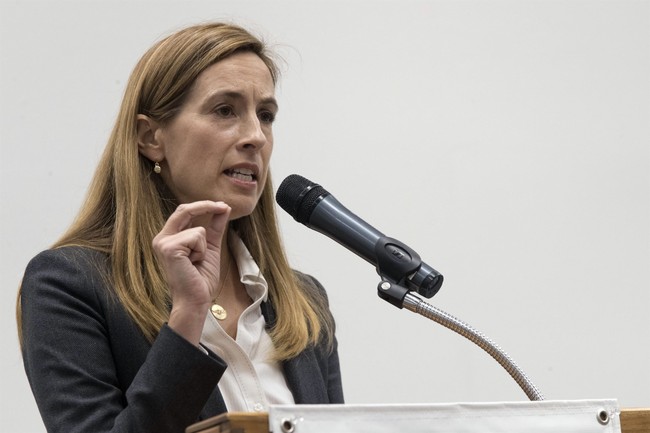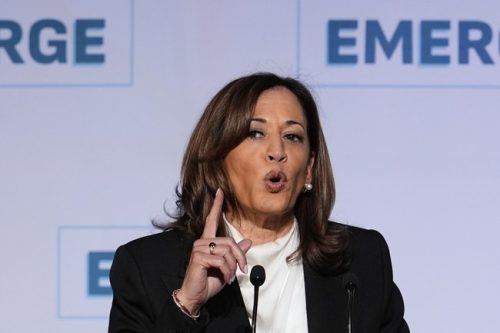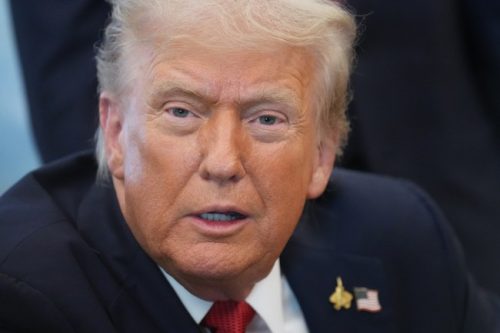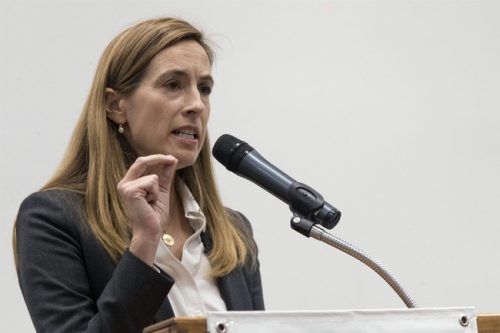Well, That’s Certainly an Interesting Donor You Have, Mikie Sherrill
There’s a headline worth paying attention to: Pin Ni, a Chinese businessman with ties to the Wanxiang Group, has funneled significant money into Rep. Mikie Sherrill’s political efforts. Records show $60,000 went to a super PAC backing Sherrill and roughly $5,800 landed directly in her campaign in June. Those figures jump off the page because $5,800 is the maximum individual contribution allowed to a campaign in a single cycle.
Questions about the donor matter just as much as the dollar amounts. It’s been reported that Ni has a Social Security number, but the legitimacy of that SSN has been called into question, and federal law bars foreign nationals from contributing to U.S. federal campaigns. He’s also given money to both parties before, including to Abigail Spanberger’s gubernatorial bid in Virginia, according to reports in the New York Post.
A Chinese businessman whose company has strong ties to the Chinese Communist Party has poured at least $65,000 into Rep. Mikie Sherrill’s bid for New Jersey governor, records show.
Pin Ni, the founder of Wanxiang America Corporation, cut at least two checks for a combined $60,000 this year for the One Giant Leap super PAC, which is backing Sherrill’s bid against Republican Jack Ciattarelli.
Pin also gave another $5,800 — the maximum allowable — directly to Sherrill’s campaign in June, records indicate.
[…]
In addition to backing her gubernatorial bid, Pin opened his coffers to Sherrill’s 2024 congressional campaign to the tune of $14,500 during the past two election cycles.
Pin’s company is part of the Wanxiang Group, a Chinese industrial behemoth that is the country’s biggest auto parts manufacturer.
The conglomerate’s late founder, Lu Guanqiu, was recognized as an outstanding Communist Party member in China, according to a 2021 press release.
[…]
US Sen. Tommy Tuberville (R-Ala.) has accused Wanxiang Group of close ties to the CCP, noting in a 2023 letter that Guanqiu had been elected as a representative of the Communist Party of China and as a delegate for the Chinese National People’s Congress.
The GOP senator’s letter addressed concerns about business dealings between Wanxiang Group and US firms.
[…]
Records indicate he has pumped money to both Democrats and Republicans over the years, including the Democrat running for Virginia governor, Abigail Spanberger, according to Fox News and Virginia Scope.
The Wanxiang connection makes this more than just a fundraising footnote. Wanxiang is a major global auto parts conglomerate and its founder’s public ties to the Chinese Communist Party raise real national security and influence concerns when money crosses into American politics. Senator Tuberville has flagged exactly these kinds of relationships in letters questioning business ties between Wanxiang and U.S. firms.
Campaign finance law is deliberately strict on foreign influence: foreign nationals are barred from contributing to federal campaigns, and mirror rules govern coordination and in-kind support. That legal framework exists because money can be a vector for influence or access that works against American interests. When donations come packaged with murky paperwork or questionable SSNs, officials ought to take notice.
From a Republican perspective this isn’t about partisan point scoring; it’s about consistent rules and national security. We’ve seen how campaign cash scandals have toppled careers before — Torricelli quit his 2002 Senate re-election bid after illegal donations and other gifts tied to earlier campaigns came to light, and Bob Menendez faced his own legal woes. Those aren’t pleasant comparisons, but they are precedents for why scrutiny matters.
Sherrill faces a competitive race in New Jersey, and her opponents will press the issue, which is how it should be in a functioning democracy. Transparency and a quick, public accounting of donation eligibility would defuse speculation and ensure the rules are followed. Voters deserve to know where the money is coming from and whether it complies with the law.
Whatever unfolds, this episode underlines a broader point: fundraising can open doors, and when donors have ties to authoritarian regimes or state-linked conglomerates, that raises legitimate alarm bells. The simplest remedy is clear accounting, full disclosure, and rigorous enforcement so American campaigns are not influenced by interests tied to foreign governments.






